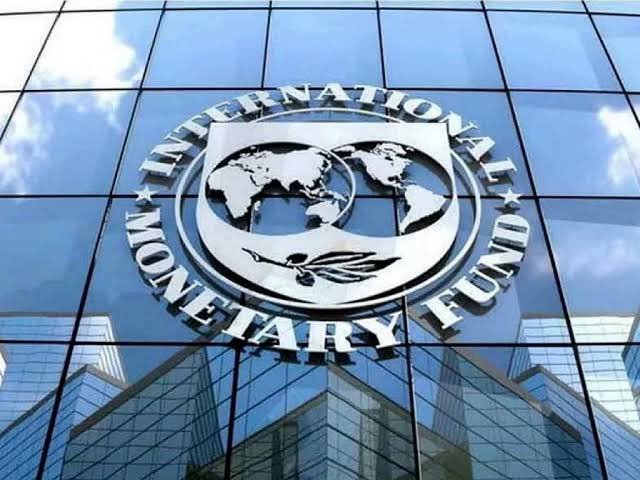By Flowerbudnews
As Nigeria records positive impacts with its economic reforms, it has started forging ahead with some legacy initiatives of consumer credit, social security and student loan schemes to ease the burden of citizens.
The government has also embarked reduction in cost of governance through the implementation of the presidential embargo on foreign trips by government officials and the consideration of the report on the report on the reduction of ministries and agencies.
These were some of the observation unveiled on Monday by a Think-Tank, Independent Media and Policy Initiative (IMPI) at its second press conference held in Abuja,
The Government has taken the economy a notch higher with the introduction of the Consumer Credit Scheme known as The Nigerian Consumer Credit Corporation (CrediCorp) which has the potentials to improve consumption capacity for Nigerians, resulting in expanded productive capacity for the manufacturing sector. This implies that you do not need to wait until you have saved so much to purchase what you desire.
It noted the extension of payment of Social Security to NCE graduates upward, with a commitment of N100 billion by the President, and the approval of Social Security Unemployment Programme to alleviate economic difficulties for unemployed youths, are part of the actions and decisions of the administration .
We therefore call on the media to sensitize and encourage our citizens across the federation to register for BVN and NIN to enable them to benefit from government’s social security programmes.
Mr Niyi Akinsiju, the Chairman of IMPI, noted that some of the bold and inevitable reforms introduced by President Bola Tinubu on assumption in office on May 29, 2023 included the fuel subsidy removal, harmonisation of the foreign exchange market.
“Painful as the decision by the Federal Government to remove petrol subsidy and the unification of the foreign exchange windows has been, the economy had responded positively by returning an impressive 3.4 percent growth in the nation’s Gross Domestic Product (GDP) in the 4th Quarter of 2023, as released by the National Bureau of Statistics (NBS) in February this year,’’ he said.
“This confirms our earlier claims and projections that the economy was responding positively to the reforms of this administration. And that Nigerians will soon begin to reap the harvest of their sacrifice through affordable cost of living, food security, creation of a job creating economy, access to quality education, and affordable health and transport services.’’
IMPI said its findings indicated that President Tinubu’s economy saves an average of N1 trillion monthly from the withdrawal of petrol-subsidy in June 2023.
He said the first quarter of the year has witnessed commendable strides in the oil and gas sector, including the domiciling of Nigeria National Petroleum Corporation Limited (NNPCL) revenue account with the Central Bank of Nigeria (CBN), which has facilitated a truly single treasury account platform for the country’s oil earnings.
In addition, in a continued upward trajectory witnessed in oil and gas exploration activities, oil rig count, an index with which upstream activities are measured, surged by 23 percent year-on-year (YoY) to 16 rigs in February 2024.
“The increased rigs activities have resulted in higher crude oil production inclusive of condensates averaging 1.65 million barrels a day as per last quarter.
“While this has positive prospects for accretion to our foreign reserve, we estimate that crude oil production should increase to 1.8 million barrels a day, which is more than the 1.78 million crude oil production target projected in the 2024 federal budget, by the end of the second quarter of 2024.
He noted that the commencement of production by Dangote Refinery which has led to the reduction in the pump price of diesel and aviation fuel, and the anticipated production of refined products by both Port Harcourt and Warri refineries underscores the healthy competition that will ultimately lead to further reduction of pump prices of fuel and other petroleum products, as well as conserve foreign exchange for the country.
“In the sphere of education and access to education, we are particularly excited with the evolving policy position of the federal government as an answer to the immigration of professionally trained Nigerian young people out of the country in the “japa” syndrome.
“The President has made good his commitment to ensuring that no qualified Nigerian is denied access to higher education and vocational studies by signing into law the bill establishing the Nigeria Education Loan Fund (NELFUND).
“The extension to this is that the Federal Ministry of Education has announced a policy to increase admission spaces for critical academic and professional courses in tertiary educational institutions that are in high demand domestically and internationally.
“This policy will bridge domestic gaps created by the egression of trained academics and professionals. We envisage that when this policy implementation is fully evolved, Nigeria may be a net exporter of skilled manpower to the world with positive implications for diaspora remittances and technology transfer,’’ Akinsiju said.
Akinsiju commended the decision by President to grant approval for the establishment of Renewed Hope Infrastructure Development Fund (RHIDF) to bridge the nation’s infrastructural gap.
This, he said, had opened a new vista in the general expectation of the benefits of petroleum subsidy removal.
“We note with great interest, the potential sources of funding targeted by the RHIDF to raise N20tn (about $14bn) for its take-off grant, and we strongly suggest that a significant percentage of the savings from the withdrawal of subsidy be made available to RHIDF for the development of infrastructures across the nation.’’
He flayed the unnecessary controversy over the ongoing construction of the 700 km Lagos-Calabar Coastal Highway as a distraction to the lofty ideas of the President Tinubu’s Administration to open up the economic potentials of Nigeria’s coastal belt. We therefore condemn the controversy thrown up in some segments of the society and urge all stakeholders in the project to pay no attention to attempts by unscrupulous elements to discredit the project.





